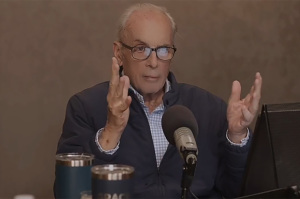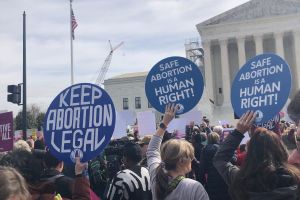Atheists Exempt From Reciting Pledge of Allegiance Still Seek to Stop it at Schools
Alliance Defending Freedom and the Massachusetts Family Institute have filed a friend-of-the-court brief in response to a lawsuit from atheist students and parents who want to stop the recitation of the Pledge of Allegiance in public schools – even though they are not required to participate.
"The Pledge of Allegiance shouldn't be banned merely because someone who is not even required to recite it feels offended," said MFI Executive Vice President Andrew Beckwith. "The Pledge unites Americans. The court should uphold the lower court's ruling and refuse to divide Americans by silencing a voluntary exercise of patriotism just because a few people don't like it."
Students and parents from the Acton - Boxborough Regional School District have expressed their objection to the Pledge, which includes the phrase "under God," even though they do not have to participate in it. A state court earlier ruled in favor of the district, arguing that the phrase serves as a clear "acknowledgment of the Founding Fathers political philosophy, and the historical and religious traditions of the United States," but the atheist parents and students have decided to appeal against the decision.
The Massachusetts Supreme Judicial Court is set to hear oral arguments on the case on Wednesday.
"Simply being offended by something does not make it a violation of the Massachusetts Constitution," added ADF Senior Legal Counsel Jeremy Tedesco. "As the lower court found, the recitation is completely voluntary, and listening to the words 'under God' does not violate anyone's constitutional freedoms."
Earlier in August, Roy Speckhardt, executive director for the American Humanist Association, which filed the lawsuit, told The Christian Post that the focus on this issue contrasts with previous suits filed.
"Instead of focusing on the pledge as being a violation of the First Amendment guarantee of no government establishment of religion, we are primarily arguing that the pledge violates our right to equal protection under the law," said Speckhardt.
"It makes us appear as second class citizens just because we believe something different from the majority," he added.
The Becket Fund for Religious Liberty, which is representing the defendants, argued that "members of the American Humanist Association have the right to remain silent if they want to, but they don't have the right to silence everyone else."
In an Action Fact Sheet, ADF suggested that what's at stake in the case is whether simply hearing religious language constitutes as a violation of state Constitution. The court decision might also decide whether religious references, even those grounded in American history, would be prohibited from the public square if they cause offense.





























